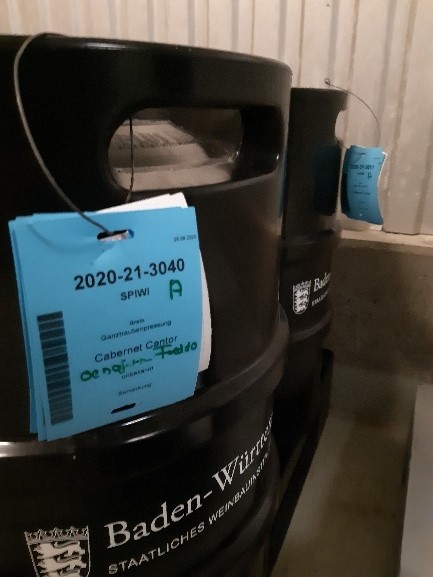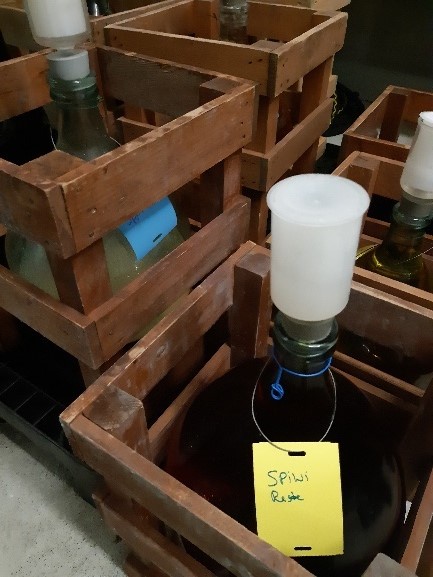Sustainable production of innovative sparkling wine
The SPiwi-project investigates and optimizes strategies for the production of oriented organic ‘SParkling’ wines, made from ‘Piwi’ (fungus-resistant) grape varieties. These relatively new varieties require research to optimise their vinification potential.






Europe has a leading role of organic wine production in the world. Almost 90% of the total organic grape production worldwide is located in Europe. New insights in organic and sustainable viticulture are therefore of economic importance. The introduction of fungus-resistant varieties can partly avoid the yield losses that often occur in organic viticulture.
Piwi-varieties
‘Piwi’ (‘pilzwiderstandsfähige’ or ‘disease tolerant’) grapes are tolerant to cryptogamic diseases and currently emerging. However, as these are relatively new varieties there is a lack of knowledge of consumer acceptance and their vinification potential. This hampers wine makers to further invest in piwis and thus sustainable and resilient development of the wine industry. The piwi-varieties used in this project are Souvignier gris, Muscaris, Cabernet cantor and Cabernet cortis (WBI Freiburg).
Consumer acceptance
This project focusses on the young Belgian consumer. The consumption of sparkling wine in Belgium comprises about 14% of the total wine consumption. Belgium also knows the highest champagne consumption per capita in the world, with cava and prosecco gaining interest due to the lower prices (CBI, 2016).
To better understand the consumer habits and preferences of the young Belgian consumer, a questionnaire was set-up (238 participants, 50:50 men:women, 89 participants age ≤ 40, 87 participants age between 41 and 59 and the 62 participants age ≥ 60). Figure 3 shows that mainly champagne, prosecco and cava are being consumed in Belgium, with the consumption of prosecco and cava being lower in the highest age category.
The preferences and drivers of liking of the young Belgian consumers for sparkling wine were investigated by means of focus groups (48 participants in the age category ≤ 40). A blind tasting of five different sparkling wine styles showed a higher preference for prosecco, compared to cava and crémant. Interestingly, it also showed good preference for two commercial piwi-sparkling wines ‘Souvignier gris’ and ‘Johanniter’ (fig. 4).
Vinification of piwi-sparkling wine
Sparkling wine production in Belgium today only consists of the traditional method. This is the method used for (i.a.) champagne, crémant and cava. The second fermentation occurs in the bottle, creating a certain style of wine. The charmat method (like prosecco) generally results in a more fresh and fruity wine as the second fermentation occurs in stainless steel tanks.
As the focus group indicated a preference for prosecco, this method and its suitability for the production of piwi-sparkling wines, will therefore be further explored in this project. The charmat method, once materials are invested, is generally cheaper and can therefore be an economical alternative to the traditional method.
In the next two years, piwi-grapes from Belgium and Italy will be used in microvinification. The wines will be evaluated by focus groups and the vinification protocol will be adapted where needed. The cooperation between Belgium (cool-climate) and Northern Italy will learn us more about the impact of climate change on these novel varieties and the resulting wine quality.
Read more: https://www.pcfruit.be/nl/SPiwi
Author
Vicky Everaerts, Proefcentrum fruitteelt vzw,
E-mail: vicky.everaerts@pcfruit.be
Editor: Marijke Hunninck, ILVO / Design: Christine Dilling, ICROFS
